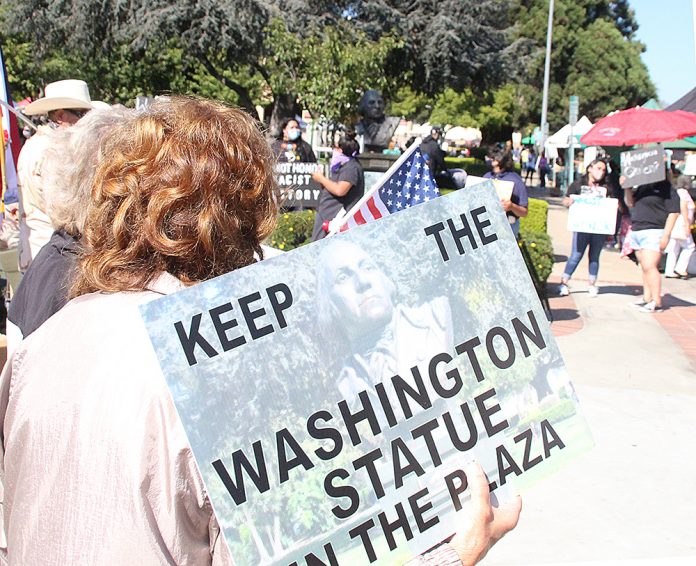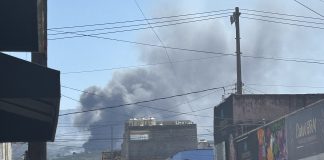The year 2020 will go down as one of the most challenging in modern history. The pandemic affected everyone in one way or another; some of us lost loved ones, and everyone dealt with isolation and stress.
Racial unrest tore through the country following the death of George Floyd at the hands of Minneapolis Police. An election marred by misinformation and political divisions was held. Wildfires tore through California, destroying homes, livelihoods and ecosystems.
But despite these challenges, we found ways to hold on, support each other and keep ourselves safe. We adapted. We made it through.
Now it’s time to look back at what 2020 taught us.
Graduations in the time of Covid
For the past few years, I have been honored to attend a number of high school graduations and chat with some incredible young people about their futures.
I did so again this year, but things were different. Schools closed in March, and students, faculty and staff began working from home. Large events such as graduation ceremonies were canceled.
As such, virtual and drive-thru graduations were key. I attended two: one at my alma mater, Pacific Coast Charter School (PCCS), and the other at Renaissance High. Students found creative ways to decorate their cars. Teachers cheered for them, and staff passed out diplomas and gifts.
I spoke over the phone with a few students. All were bummed about not being able to celebrate their graduation in person, but they also had plenty of hope.
“I’m grateful we’ll get to graduate, in whatever way we can,” said PCCS Valedictorian Celeste Vazquez. “I’m excited to move forward.”
Businesses, nonprofits switch up production
In the first wave of the pandemic, a number of businesses and nonprofits across the Pajaro Valley switched gears to aid their community. Clothing stores such as Queen’s Shoes and nonprofits such as Casa de la Cultura sewed and donated face masks. Larger companies like S&V Labs and Blume Distillation switched to making hand and surface sanitizers.
Even breweries got in on the action. Fruition Brewing of Watsonville began donating their “left-over” and out-of-date alcohol to Blume. Gradually, other breweries joined in on the partnership.
Fruition’s owner David Purgason said that the project was a positive step in an otherwise scary time for businesses like his.
“Breweries, taprooms, bars… We’re all closed for the greater good,” he said. “I hope that doesn’t go unnoticed. When we come out on the other side of this, let’s all have a beer together.”
Blume’s support even went beyond the local community, sending sanitizer to the Navajo Nation, which was hit hard by Covid-19.
LGBTQ community celebrates victories
In June, history was made when the U.S. Supreme Court ruled that employment discrimination on the basis of sexual orientation or gender identity is prohibited under federal law.
I spoke with Pajaro Valley Pride’s Marketing Coordinator, Danielle Elizalde about the landmark decision. She said that it was even more important than the legalization of same-sex marriage in 2015.
“Legalizing gay marriage… was about relationships,” she said. “This decision is about just being able to legally be who you are.”
During election season, many LGBTQ candidates across the nation won races. In Watsonville, Jimmy Dutra won his City Council race for District 6, making him the city’s first openly gay mayor. He stands alongside Donna Meyers, Santa Cruz’s first lesbian mayor.
“It is definitely a moment in history that will be archived and remembered,” Dutra said. “But it’s more than that. It’s hope for our future leaders… It will give them hope that anything is possible, no matter who you are or who you love.”
Watsonville debates Washington
The Black Lives Matter movement was thrown into the spotlight this year after Floyd’s death. The murder sparked marches worldwide, calling for an end to police brutality and systematic racism.
It caught on in Watsonville, where various groups marched in the Plaza in support of the movement. Then one particular group drew attention to the bust of George Washington, which has been situated in the Plaza for nearly two decades.
Monuments to controversial figures across the U.S. had started to be removed, and the bust was Watsonville’s local focal point. Numerous online surveys and in-person rallies both for and against keeping the bust emerged. Protestors said they didn’t want a symbol of racism (Washington owned hundreds of slaves) in their city. Counter-protestors argued that the bust was instead a symbol of freedom and the American Dream.
The future of the bust is still in limbo, and will most likely be decided on in the new year.
Meanwhile, the Black Lives Matter movement persists across the globe.
Supporting the arts
As restaurants deal with back-and-forth openings and closings, as sports teams decide how to safely practice (or not), and as first responders grind through this devastating pandemic, one sector has pretty much remained shuttered.
The arts—whether a small nonprofit or major concert venue—has taken a big hit during Covid-19. Artists have found some ways to adapt virtually, such as the Cabrillo College Theater Department’s virtual fall production, but their futures remain uncertain.
Back in April, Art Council Santa Cruz County’s board of directors announced the allocation of $75,000 for its COVID-19 Emergency Relief Grants. The one-time emergency grants supported the council’s grantee organizations.
“The arts are where we go to heal,” said ACSC Executive Director Jim Brown. “When this… is over, it will be the arts that will bring us together again, at concerts, festivals, plays and events.”








